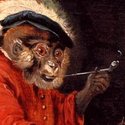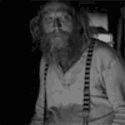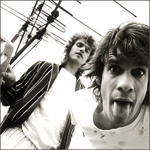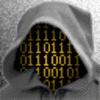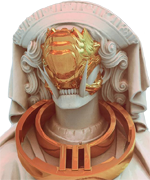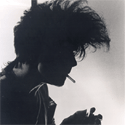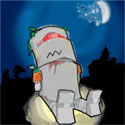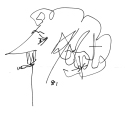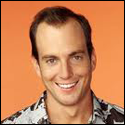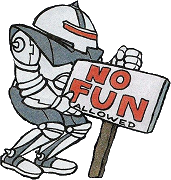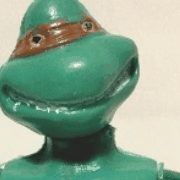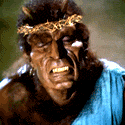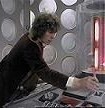|
Stefan Zweig's only full novel, Beware of Pity, which has a cavalry lieutenant inadvertently inviting a Hungarian landowner's crippled daughter to dance, getting tangled up with her through a mixture of guilt and narcissistic, self-aggrandising compassion. Drawcard here is his great grasp of motivation; the choices are always completely understandable and logical, even as the situation spirals out of control. Doesn't really change the fact that Zweig's a born short-story writer though, and you get a definite 'padded-out novella' feeling in spots. Continuing the somewhat unlikely theme of Hungarians with disabilities, Dezso Kosztolanyi's Skylark sees a provincial couple send their mildly-retarded daughter away to visit family and find it hard not to enjoy life without her. Kosztolayni's more folksy and less dryly literary than Zweig, but still no slouch - he even comes across a little Czech (read: implausibly jovial), like Hrabal or Grusa. Had it sitting around for an age before I got round to reading it but it was surprisingly enjoyable and nowhere near as gratingly moral as the synopsis may sound. Opted for some pop-history in Simon Winchester's Meaning of Everything, on the making of the 17 volume Oxford English Dictionary. The idea is intriguing but 70 years worth of compiling and defining words was enough to drive half the people involved crazy and this book will make you understand why. If reading about etymological fetishists performing repetitive tasks is your thing, then it delivers on every level. There's actually a good story in here, but the sheer overwhelming drudgery of what they accomplished is mindbending. Apparently the Swedes are making even harder work of it though - 150 years and they're still stuck on 'S'. Also got round to reading Elias Canetti's Auto da Fe after probably like 2 years of having it sit on the shelf. The cover art on it was so unbelievably poo poo that I picked up a different edition recently, just so I could bring myself to read it. Page 3: "There was nothing he loathed more intensely than battered books," and you put Max Headroom wearing a book as a hat on the cover... Anyway: best thing I've read in a long time, even with a wandering second act. The whole thing is absurdly monstrous; the only sympathetic character shows up in the last 30 pages. Definitely worth your time though, even with one of the most virulent and hateful characters I've come across.
|
|
|
|

|
| # ? May 13, 2024 21:40 |
|
Of Human Bondage by W. Somerset Maugham It started a little slowly, but once I really got into it (out of stubbornness if nothing else) it began to be a lot more interesting. It's basically a "coming of age" novel with a bit more introspection, plus one of the most train-wreck romances of all literature. Lots of pondering about religion, free will, art, etc. It isn't anything insanely special, but it's a good read. Thick as hell, though - I'll be glad to move on to something a little lighter.
|
|
|
|
I just finished McCarthy's All The Pretty Horses and enjoyed it fairly well. Definitely not my favorite of his books that I've read but it had enough emotion and description of the raw environment that it was plenty interesting.Encryptic posted:Suttree by Cormac McCarthy - As good as Blood Meridian is, I'd say this is the best thing I've read from McCarthy since I've read almost all of his books at this point. Suttree follows the titular character, Cornelius Suttree - who has left behind his marriage and a life of privilege to live in an old houseboat on the river in Knoxville, Tennessee and spend his days fishing, drinking, occasionally working and encountering a massive cast of eccentric characters. I've read 75% of McCarthy's novels and I think Suttree is by far my favorite. There's just something about the main character and his experiences that touched me more than any of his other books. I love Blood Meridian quite a lot but Suttree is the number one book that I recommend to people wanting to read his work.
|
|
|
|
Because I have a friend who won't shut up about how great the science in the book was, I just finished reading State of Fear, and I found it is dumb as I thought it would be. Even by Crichton's standards it was pretty implausible and the characters were significantly one-dimensional. I'm reading some Murakami now to cleanse my tainted palette.
|
|
|
|
|
Angels and Demons - Dan Brown. I was going camping and had nearly finished The Da Vinci Code, so I needed something else to read. And I bought that book along. I didn't expect to, but I enjoyed it more than The Da Vinci Code.
|
|
|
|
Blindsight by Peter Watts. Hard science fiction, Hugo nominated - just excellent. Fell apart a tiny bit at the end but still, excellent.
|
|
|
|
Latro in the Mist and Soldier of Sidon by Gene Wolfe. Latro in the Mist is the story of Latro, a soldier in ancient Greece who receives a head injury during battle that causes him to only remember periods of up to a day (somewhat similar to the movie Memento - though this came out years before the movie) but in return, grants him the ability to see and converse with gods and figures out of Greek mythology. Latro writes down his experiences each day, which provides the narrative. Typical of Wolfe, the unreliable narrator serves to keep portions of the story obscured and leaves the reader to put it together - even the names of gods and places are almost never revealed directly. This does provide some interesting revelations like the fact that Latro fought at Thermopylae - on the side of the Persians. It probably helps if you have a fair knowledge of Greek mythology and the geography of the ancient world as well. I've had this sitting on the shelf for a while and finally got around to finishing it - I'd say it's probably the best stuff I've read from him after Book of the New Sun. Soldier of Sidon is a followup that came out a couple years back (the original two books came out in the early 80s). It continues Latro's story as he adventures through Egypt in the same narrative style. I didn't dig it as much as the original two books, but it's not a bad read.
|
|
|
|
Dune by Frank Herbert and The Road by Cormac McCarthy. First time reading both, and I suspect that I don't need to say anything else about them here. Dune was just hands down kick rear end sci-fi, and The Road was some other animal entirely. I'll need to sleep on it I think.
|
|
|
|
The Monster of Florence by Douglas Preston with Mario Spezi. I had been fascinated by this true, unsolved bizarre serial murder spree in Florence, Italy ever since I read a heavily fictionalized version of it in Hannibal by Thomas Harris. The first half of the book is a rough timeline of the murders and is very entertaining and chilling. The third quarter is a lot of boring Italian legal bullshit, but the final quarter is the best - the authors ended up getting arrested on suspicion of being the murderers themselves while researching the case. The whole thing borrows heavily, I think, from Thomas Harris in the constant juxtaposition of the eternal beauty of Florence with the brutality of the crimes. Lots of really good and genuinely disturbing writing mixed with some boring crap but I would definitely recommend it. You'll never think that the U.S. legal system is inefficient and unfair after reading this - Italy's is an inexcusable mess.
|
|
|
|
Valis by Phillip k. Dick- Wow, amazing. Started a bit slow, but Phil never fails.
|
|
|
|
Picked up Cosmic Puppets (Philip K. Dick) at a yardsale a few weeks ago knowing nothing about it other then the authors name, and just got around to reading it. Kept me entertained, but was obviously written early in Dicks career. Got Ringworld (Larry Niven) at the same yardsale (only a quarter for both of them hurray). Didn't know what to expect in this one either, though I somehow had the idea this was a hallowed classic, and I ended up fairly disappointed. Most the concepts in the book were interesting, but followed a trend of being presented then lost in uninteresting character development. Or presented, then harped on and on about (I get it Larry, the girl is lucky) I guess I'm just a big gay emotional baby, but its hard to stay interested in concepts when they've got the baggage of a lame character.
|
|
|
|
I just finished the first of Laura K Hamilton's vampire hunter series. I won't be picking up any more of them. I was looking for some popcorn serial fiction and remembered the rush of women that came in when the new Anita Blake book came out (I work at a book store). So I picked it up the first after reading the back of it. Thrilling? Sexy? Scary? Sign me up! It was none of these things.
|
|
|
|
Player of Games by Iain M Banks. His books have been hit-or-miss for me in the past, but this one delivered pretty well. Banks does a really good job of balancing fun/outright entertainment with being thought-provoking, I think better than any other author I can think of that I've read. This book was also refreshingly devoid of "main character dealing with INCREDIBLE PAST TRAUMA", which is a first for any of the Banks books I've read, and pretty refreshing. There's a twist in the end that I guess Banks just felt obligated to put in to keep up his usual formula, but it really had almost nothing to do with the central narrative. I would place this above Excession, Inversions, and Look to Windward, on par with or maybe a bit better than The Algebraist, and not quite as good as Use of Weapons.
|
|
|
|
"The Bird is Raven" by Benjamin Lebert. I read it because it caught my eye at the library and it was short. The idea of two guys sharing their stories while on a train from point A to B seemed like an interesting idea but it turned into boring blah blah angst/anger/sex and I guess I shouldn't be too surprised considering it was written by a 19ish guy. Wasn't completely loving awful, but it wasn't amazing either. "Dance Dance Dance" by Haruki Murakami I love Murakami and A Wild Sheep Chase was one of my favorite books by him so when I found out the loose end he didn't tie up in that book was the basis for Dance Dance Dance I knew I had to read it. I ended up loving it even more. It's probably my favorite by him at this point. Another goon commented saying it's as though he took an outline for a book and wrote both "Wind-up Bird Chronicle" and "Dance Dance Dance" based off of it. It wasn't til the end that the similarities that were present hit me but it still felt like it's own book entirely and to be quite honest I enjoyed this way more than Wind-up Bird Chronicle. "After the Quake" by Haruki Murakami Read this in one sitting today and it was pretty entertaining. Enjoyed some of the stories more than other, most notably "super frog saves tokyo." Could have done without the last story and the first one to be quite honest. "Coruscant Nights II: Streets of Shadows" by Michael Reeves I'm a Star Wars nerd and read books from the expanded universe and while I thought the first book in this series was mildly enjoyable, I really got into this one and tore through it in about two days. The banter from Den Dhurr was pretty entertaining and I think I-5 is a great character. Sadly it's only a trilogy - I kind of wish I could see more adventures from this crew.
|
|
|
|
I just finished, The Economic Naturalist. Complete shite. The premise is good, using everyday situations to illustrate the fundamentals of economics. The execution is terrible, most of it is pure speculation, almost nothing is quantified and the conclusions are outright silly at times. What you end up with is a paragraph long explanation of some concept like cost/benefit and then a handful of just-so stories with no sources. The section on relationships could be lifted directly from GBS.
|
|
|
|
Discover Your Inner Economist by Tyler Cowen. It's Freaknomics light. I really enjoy books like this. Some of his conclusions were very speculative, so you have to take it with a grain of salt. The chapters on ethnic restaurants and charities were great. Siddhartha by Herman Hesse. This was a re-read for me. I can appreciate it much more at 25 than I could when it was assigned reading in high school. I think I'm going to have to read it once a decade for perspective.
|
|
|
|
kchar posted:The Time Traveler's Wife by Audrey Niffenegger I know this is a fairly old post, but I had to comment that this was one of the few books I put down after getting about halfway through it. I thought it was hard to read and I never cared about any of the characters. If I haven't given it away, I may try it again some day, but I'm not in a rush of any sort. I'm working through VALIS and Catch 22 right now, just finished the Dexter books and Glory Road and Starship Troopers by Heinlein. I thought Glory Road was entertaining, but I never really got the sense of epic journey and quest that I think he was trying to convey. I liked the end and the brief nod to what other path his life might have taken had he been around to get his mail and the lottery news. Also, the "milady wife" and "milord hero" crap started to get to me. I thought Starship Troopers was great and a fun read. It reminded me of a book that could have been written in a grittier Ender's universe. I do like his style of assuming that you know about the world his stories are set in (for example, citizen status in ST) and I tended not to notice that he never explicitly spelled it out until he did. The Dexter books were fun to read and as I don't have Showtime I'm not comparing anything with the series. I think that Jeff Lindsay has a really fascinating character in Dexter, but I'm not 100% sure that I'm going to like the next book. The foreshadowing of the kids is bugging me... but we'll see how that plays out. I've always been completely fascinated by what might go on in the mind of a serial killer and I find that he's drawn Dexter in a a potentially realistic way and I can believe him as a character.
|
|
|
|
I just finished the Time Traveler's Wife, also, actually. I absolutely love it. It's probably the saddest book I've ever read. It was just so romantic. I agree with pretty much everything kchar said. The ending scene of the 82 year old Clare was just amazing and absolutely perfect. I cried like a little baby.. I couldn't recommend this book more. By the way, this is being made into a movie set to come out later this year (in December). http://www.imdb.com/title/tt0452694/
|
|
|
|
Gentlemen of the Road by Michael Chabon - Two men (the titular Gentlemen of the Road) who wander around swindling people until they're drawn into a mission to rescue the heir of the Khazar ruler. Chabon's style is always fun to read, though I didn't get into this as much as his other work I've enjoyed. I do have to agree that his original title he wanted ("Jews With Swords") would have been pretty funny and in keeping with the pulp serial novel format he wrote it in. The Human Stain by Philip Roth - Saw the movie adaptation with Anthony Hopkins some months ago and wasn't totally impressed by it, but the book is much better - the story of a distinguished college professor who inadvertently causes a racial controversy while hiding his own secret. It still wanders a bit at points but the characterizations are excellent and Les Farley in particular is presented as a much more interesting if not particularly likeable figure in the book.
|
|
|
|
Dune by Frank Herbert. I used to read exclusively SF, so I don't know how I missed this one. I liked it quite a bit. Nice story, though it's a bit loopy at times. I've heard that the sequels universally suck, so I'll skip those. Up next: A Cook's Tour by Tony Bourdain.
|
|
|
|
Eye In The Sky by Phillip K. Dick. One of his earlier works not Dick's best but no doubt some entertaining sci-fi. About a guy who is caught in an accident of a proton beam deflector and is sucked into the consciousness of those he was with. Worth the few hours, some interesting ideas like always from Dick.
|
|
|
|
I finally finished Neal Stephenson's Cryptonomicon. EDIT: Sorry, I was just wiped out from finishing it. It's a great novel for nerds, but people who don't know anything about crypto might have a particularly difficult time with it. It's got several story lines: a Marine Raider during World War II, a brilliant mathematician who works for Bletchley Park during WW2, a programmer working for an entrepreneurial company in the latter half of the 1990s and a weird priest who knows a lot about crypto. All in all, it was a very good book, but I think you're really going to have to like a lot of detail about crypto to get into it. stray fucked around with this message at 17:39 on Sep 22, 2008 |
|
|
|
stray posted:I finally finished Neal Stephenson's Cryptonomicon. Thanks for letting us know.
|
|
|
|
Dark Harvest -- Norman Partridge A while back (perhaps a year ago) I went and added several winners of the HWA's Stoker Award to my Amazon wishlist. Having just had a birthday, my wife picked up several for me. The first of these was Norman Partridge's Dark Harvest. It's a slim little horror/thriller dripping with as many cliches as blood. Mid-sixty's setting? Check. Halloween? Check. Small town? Check. Two-dimensional characters? Check. Unresolved/unexplained plot details? Check. Wholly unbelievable plot? Check. Yet despite all of this, and I'm really turning out to be something of a literary snob of late, I'm sad to admit, this little book is fun as hell. I literally could not put it down. Partridge's style is amateurish and full of writing that any professional (and even non-professionals such as yours truly) would shy away from, and yet the prose was incredibly lean. One thing this guy has a knack for is pacing. This book moves at breakneck speed. Recommended, flaws and all, for fans of horror, especially now, during our most cherished of seasons.
|
|
|
|
I finished Don DeLillo's Libra and White Noise in the past few days. Including Mao II, that's my third DeLillo book this summer. Not surprisingly, I preferred White Noise, but both were excellent books. I have to check out how much of Libra is based on fact, but I can't believe I never heard that Lee Harvey Oswald defected to Russia since I read a lot about Cold War History. Also, some of the characters and assassination plans were a little hard to follow. White Noise was awesome. A quick question about the regular interruption of the novel with little facts from the radio or TV: were these supposed to be examples of "White Noise"? I can't explain them otherwise. DeLillo fans: where should I go from here? I'm a math nerd, so I'm thinking Ratner's Star. Any other suggestions?
|
|
|
|
Elmer Gantry | Sinclair Lewis This si my second Lewis novel and I really enjoyed it. Of course it's waaaay too long and for long stretches really doesn't go anywhere but there are sections of it that were really great and made the long story really worth it. It follows Elmer Gantry an aspiring protestant preacher as he rises through the ranks while hiding a private life steeped in hypocrisy and sin. It is a really great study into the duality of those working in the church. The ending was pretty funny too.
|
|
|
|
Agent Dwarf posted:White Noise was awesome. A quick question about the regular interruption of the novel with little facts from the radio or TV: were these supposed to be examples of "White Noise"? I can't explain them otherwise. I think that's basically it. The premise of the novel is partly that we're totally surrounded by these devices that create 'white noise'. They saturate our lives and experiences and so even the novel has them seeping in to the story. The kids even spout off marketing jingles and slogans from memory because they're exposed to them so much.
|
|
|
|
I finished both Rant and Diary by Chuck Palahniuk recently. Rant: An Oral Biography Of Buster Casey was exceptional, definitely one of his best works. The story starts out simple enough, with quaint little anecdotes about Buster's childhood. As the story progresses, the whole little near-future universe they live in gets fully fleshed out, and there is just so much richness in the wonderful little metaphors and allegories that pervade much of the book. The use of the oral biography format is amazing too - it's not used as a gimmick, it's really utilized to show different sides of the same story, and to unwind the plot in a non-linear fashion. It also is a major deviation from the normal narrative voice that Chuck uses, and as a result it feels really fresh. I wouldn't want to spoil anything by talking about the latter portion of the book, but suffice to say that it is entirely unexpected, and equal parts genius and batshit insane. And this insanity slowly unwinds as you get further and further - it isn't something where you reach the "twist" and suddenly the whole book has shifted. It's a slow burn. Diary is not one of my favorites by Chuck, but it wasn't as off as I was expecting after reading various opinions on it. The whole take on where inspiration comes from, and the suffering required to make art is pretty thought-provoking, and there's the normal level of quotable lines and interesting observations, but the story itself just isn't that strong. A couple predictable twists and an anticlimactic ending were the biggest problems for me. But one thing I couldn't help but think while reading both of these is that the people who call Palahniuk a 'one-note nihilist' are WAY off. Sure, there are bits of true nihilism here and there, but most of what people label as his nihilism is just him rejecting ideals he feels are materialistic or shallow or empty. He is striving so hard to find meaning - you can see it in everything he writes. He WANTS things to mean something SO BAD you can loving taste it, you can loving feel it through your fingers as you flip the pages. Read Rant and try and tell me that Palahniuk is a nihilist, please.
|
|
|
|
I just finished The Odyssey and The Iliad by Homer. I am a HUGE fan of all the classics in literature, and my shelves at home are teeming with Shakespeare, Dickens, Austen, Bronte and many others. The Iliad and the Odyssey are both written in Verse, so they are a little hard at first. Once I got used to it though, they are both wonderful novels of adventure and suspense. Up next, Hamlet for my English class, and Jane Eyre by Charlotte Bronte for fun. Satine fucked around with this message at 13:31 on Sep 26, 2008 |
|
|
|
I just finished Six Sick Hipsters by rayo Casablanca. Pure genius based on the top tier of hipsterism and a serial killer named Doctor Jeep (taken from the Sisters of Mercy song of the same name). It reads like Chuck Palahniuk before his attempts at shock became less shock and more blah combined with Jeff Vandermeer(who is also referenced in the book). Between Paleontological porn to the greatest knitter in NYC, to a baboon named human being and New Wave music fanaticism to sludge diving; this is a fast paced hunt for a killer where not everything is as it seems. I liken it to Warren Ellis' Crooked Little Vein yet much more coherent and not written just to shock but to tell an actual tale.
|
|
|
|
Neo_Reloaded posted:Rant: An Oral Biography Of Buster Casey was exceptional, definitely one of his best works. ........ I read Rant and Haunted back-to-back in two days, and i'm going to give Lullaby a shot this weekend. Agreeing with everything you said about the slow twist in Rant. When i reached that part, i kept flipping back to earlier parts of the book, rereading certain scenes and saying to myself "Holy poo poo, how didn't i see this coming". The book made my head hurt a little, but in a good way. Mr. Adenosine fucked around with this message at 11:33 on Sep 27, 2008 |
|
|
|
Just finished Watership Down about an hour ago. Amazing read, I recommend it to everybody that enjoys reading. Some of the best suspense and build-up in a book I've read in a long time.
|
|
|
|
Darwin's Blade by Dan Simmons - An accident scene investigator stumbles on an insurance fraud scheme. There's a fair amount of interesting bits about how the main character goes about his job and a number of accidents feature in the book that are drawn from urban legend as well as real cases - though the plot that connects them all is less gripping. I've read a fair amount of Simmons' books at this point and I definitely prefer his horror/supernatural work to his suspense novels but it wasn't that bad of a read in the end, if not his best. Aftermath, Inc. by Gil Reavill - Interesting nonfiction read (if a bit unfocused at times) about the titular company that specializes in cleaning up accident and crime scenes - everything from houses where people died and decomposed for weeks before being found to shotgun suicides. Lot of good detail about how they work as well as anecdotes from cases they've handled. Agent Dwarf posted:I finished Don DeLillo's Libra and White Noise in the past few days. Including Mao II, that's my third DeLillo book this summer. Not surprisingly, I preferred White Noise, but both were excellent books. I have to check out how much of Libra is based on fact, but I can't believe I never heard that Lee Harvey Oswald defected to Russia since I read a lot about Cold War History. Also, some of the characters and assassination plans were a little hard to follow. White Noise was awesome. A quick question about the regular interruption of the novel with little facts from the radio or TV: were these supposed to be examples of "White Noise"? I can't explain them otherwise. The basic outlines of Libra are factual and most of the people mentioned in it were real, though of course DeLillo took some liberties. I've read elsewhere that Oswald did actually try to defect to Russia but was turned down as in the book. You might dig American Tabloid by James Ellroy if you liked Libra - it's a (fictionalized) story that takes place over several years leading up to the JFK assassination, though Oswald doesn't feature in the story at all. Ellroy has said he was inspired by Libra. I haven't read Ratner's Star but I did recently read Underworld which was good and if you're accustomed to DeLillo's style, shouldn't be too difficult to get into. It is a bit overlong, though.
|
|
|
|
Alive in Necropolis by Doug Dorst. A novel about the cemetary town of Colma, CA a town with more corpses than living people. The protagonist is a cop with professional and personal difficulties who discovers that his predecessor spent his last months policing the dead. It was a pretty good debut novel, and the jacket art was cool. It's similar to the movie "The Frighteners."
|
|
|
|
The Artist of the Missing by Paul LaFarge. Second book by him I've read, the first being Haussman. A very enjoyable read, with several interesting plot twists and a cleverly abstract story. Reminded me a great deal of Pynchon's writing, but not as verbose. Having just read his earlier novel on the reconstruction of Paris, I imagined the City of the novel as being a variant of Paris; anyone who imagined it as another metropolis?
|
|
|
|
BRISTOL PALINS BABY posted:Elmer Gantry | Sinclair Lewis I just finished this too about three weeks ago. I don't know about the book being too long, but the parallel storylines do drag on, especially when it's a religious debate. I started with Babbit (thanks to this thread) and have been reading Lewis between other books. Going down to Powell's today to pick up a couple more books by Lewis.
|
|
|
|
Just finished The Road a while ago, and all I'd like to say is that I'm glad I read it at the age I am now, instead of a few years ago. This book would have destroyed me.
|
|
|
|
The Rosetta Key by William Dietrich - The followup to his previous novel Napoleon's Pyramids that I read earlier this year (which follows an American adventurer drawn into an Indiana Jones-like mystery in Egypt during Napoleon's invasion of that country in 1799). Pretty good read if you're into historical adventure or historical fiction in general and wraps up the story begun in the previous book. The Ruins by Scott Smith - Happened to pick this up on a whim while looking for something else at the library last week. A group of American tourists take a trip to the Yucatan and meet a German tourist who asks them to help him find his brother who followed a girl to an archaeological dig in the jungle - only to be trapped at the dig site when a horrifying secret is discovered. Very creepy book and the characters are well-done for a horror novel (as opposed to just bodies to kill off) - though I thought the ending sucked After 250+ pages of waiting for them to figure out some way to get off the hill - everyone dies and the Greeks blunder into the trap 3 days later. That would have been OK if it was a short story but it doesn't work so well in novel format.
|
|
|
|
Lord of Chaos, book 6 in the Wheel of Time series. I'd paused my reading the series after book 8 originally came out in 1998, and only became re-interested after the passing of author, Robert Jordan, just a year ago. Fantasy maven Brandon Sanderson has been given the iron yoke of finishing the final volume in the series, A Memory of Light. I'm hoping that my re-reading of the series will coincide with the release of the final volume, which Jordan had predicted would be twice as long as any of the previous releases, at approximately 1,500 pages. My personal bet is that the publisher, Tor, will defile Jordan's wishes posthumously and split AMoL into books #12 and #13, respectively. As for Lord of Chaos, I'd forgotten what a moving and relevant chapter it was in regards to the entire series. Protagonist Rand al'Thor is nearing the height of his power, both militarily and in the 'magic' system of the series, the One Power. The first half of book #6 is somewhat plodding, dealing with sub-plot after sub-plot. In fact, book #5 was nothing but sub-plot, and I feel that LoC was Jordan's apology to his fans. Trying to be as spoiler-free as possible: the final chapters of #6 are fast-paced, the action remains true to the characters' motivations and abilities, and the final battle scene is not only beneficial to the characters, but rewarding to fans of the series. Several cans of medieval vintage whoop-rear end are opened, one right after the other, and makes Helm's Deep resemble my guilty childhood pleasure. Lord of Chaos is not simply the middle-point of the series as it stands currently; it marks a rising in action and intrigue that define the tone and pace of the remainder of the books. I actually finished this book last month and am currently on #7, checking Wheel of Time websites daily to see if Sanderson has chickened out on his duties yet. As the Shienarans say, "Duty is heavier than a mountain, death lighter than a feather." Still, my favorite so far out of the entire series. Pemmican fucked around with this message at 01:21 on Sep 30, 2008 |
|
|
|

|
| # ? May 13, 2024 21:40 |
|
My standing policy of dismissing of Herman Melville as "too nautical" recently took a beating after reading Three Stories, which gathers his short stories Bartleby the Scrivener, Benito Cereno and Billy Budd. I'm half-convinced by the folks cheerleading Melville as the greatest American author, especially after Bartleby which is not only a great story in its own right, but anticipates literary trends still forty-fifty years down the track. Bonus is it also includes some great woodcuts by Garrick Palmer; couldn't find online copies, but here's similar stuff of his. Also got through Faulkner's Absalom, Absalom! courtesy of a dead period at work. It's hard to deny his genius, even when he uses it to be needlessly baroque (in the German style?), but the book itself is fairly uneven. No-one seems to stand out as a particularly strong character in the first half and it's only when he eases off the whole apocraphyl Sutpen myth-making that they really gain any traction. Sounds a bit harsh, but it's worth reading in the end, though not so much as an entry point for Faulkner; it was my fourth of his and probably much easier recognising a number of characters right off the bat. Next up was Jean-Philippe Toussaint's Monsieur which hardly even counts as a book, at a measly 100 pages (still cost full-price though), but it's a great little slice of deadpan vacuousness. The barely-there narrative follows a French executive who basically just avoids all confrontation and refuses to give much acknowledgement to even the most dramatic developments in his life. Sparse and very dry, but also very funny, coming across as the literary equivalent of a mix of Antonioni and Bunuel. The author even adapted it into a film (which no doubt disappeared immediately), which just reinforces that it really resembles a treatment more than a novel. Last thing I finished was the pop-philosophical Wittgenstein's Poker, which takes a meeting in Cambridge where Wittgenstein supposedly threatened Karl Popper with a red-hot poker as a starting place to cast a net over the early 20th century philosophical milieu. I think they intended to play it fairly even-handedly, but its quite funny just how far they go in painting Popper as having an all-consuming need to be recognised by, and then to destroy, Wittgenstein; it's almost pathetic. Definitely more history than theory, and the tension (mostly one way) between W's philosophy-as-linguistic-game and Popper's heroic Philosopher-Colossus ideal can't not work out as gold fodder for it.
|
|
|



